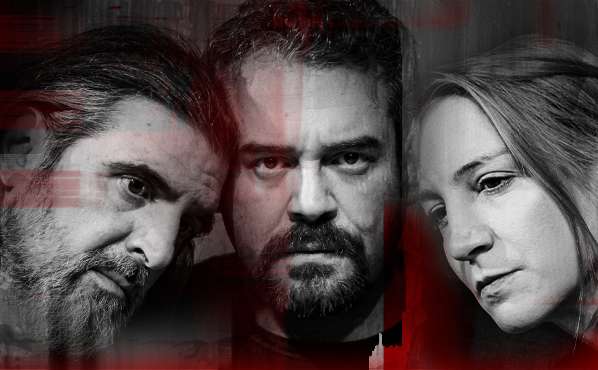Euripides' "Herakles Mainomenos" in Sainopouleio

Spread the word




Euripides
HERACLES MAINOMENOS (the Raging)
The emblematic tragedy of Euripides, "Heracles Mainomenos," will tour the open theatres of the whole country, directed by Dimitris Karantzas and with a troupe of great actors. After its premiere in Athens (Fri 5/7 & Sat 6/7—Papagou), the show will travel to more than 40 stations throughout Greece and return at the end of August to the open-air theatres of Attica.
A great troupe with Pygmalion Dadakaridis, Giorgos Gallos, Stefania Gouliotis, Anna Kalaitzidou, Giannis Klinis, Aineia Tsamatis, Nikos Milias, Gal Robisa, Thanasis Raftopoulos, and Antonis Antonopoulos, as well as eminent musician Fotis Siotas in a prominent role on stage, immerses us in the existential anguish of the emblematic tragedy of Euripides under the directorial guidance of Dimitris Karantzas.
"Who was born so unhappy?"
In his rarely performed play "Heracles Raging", Euripides puts Hercules at the centre of attention. This mythical person will collapse in the most painful crash and, from a demigod, will become a "sin" through a relentless God game.
In this, the Poet's darkest and most human work, the place of action is Thebes, under the tyranny of the Lykos after Heracles left for his last labour. Heracles' father and wife, exiled and dying, have no hope. So does Choros, who is suddenly enslaved to the regime of the Tyrant Wolf. When Hercules comes from Hades having accomplished all his labours, he overthrows Lykos, and everything indicates their end will be happy. But the will of the Gods - the Tyranny of Hercules - stains the hero's hands with the sickest blood. The blood of his wife and children, which he will kill, spurred on by the fury of Rage.
Punishment for a hero(?), a demigod(?) or just a human who went beyond the norm, stepping outside the human and disrupting the structure and predetermined boundaries?
Through this parable, with its politically solid ramifications, Euripides illuminates the inadequacy and "littleness" of human existence in the face of a higher power - whether it is called the Regime Tyranny or God - that destroys the human will and vanishes it into non-existence. A fierce criticism of Euripides for the absence of Democracy and the abandonment of the Gods becomes, in a performance, a cry of man's despair in the face of the realisation of his weakness.

